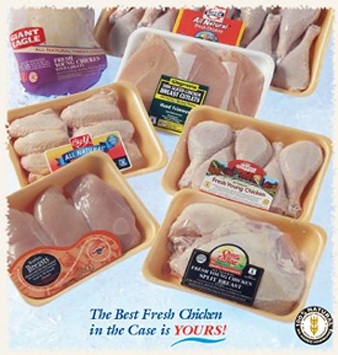This is going to be transformed into dinner in about 12 hours, traditional comfort food as the people of Brisbane bundle up with lows as low as 59F and highs of only 69F with rain (people are dressed like it was  Feb. in Saskatoon).
Feb. in Saskatoon).
But when I picked the bird out of the cooler case yesterday, blood ran down my hand. I looked for something to help clean up the mess and could only find my shorts.
The same thing happened a few weeks ago with some marked-down packaged chicken pieces. I happened to pick a checkout aisle that was being manned by the manager. I asked Mr. Megalomart Manager if he had something form me to wipe my hands on.
Nope.
I asked about the bloody drippings now on the checkout conveyor. He looked around but couldn’t find the sanitizing solution he insisted was at every checkout.
I said, in the U.S. and Canada, it has become routine to find disposable sanitizing wipes not only near the meat counter, but any raw product such as produce, along with a variety of contraptions and wipes for sanitizing shopping carts.
Manager thought the wipes were a decent idea; they had a weekly food safety meeting and he’d bring it up with corporate.
Corporate trashed the idea because of cost and waste.
Something to keep in mind next time a vp of something proclaims, “food safety is our top priority.”

 on the outside of the packet.
on the outside of the packet.